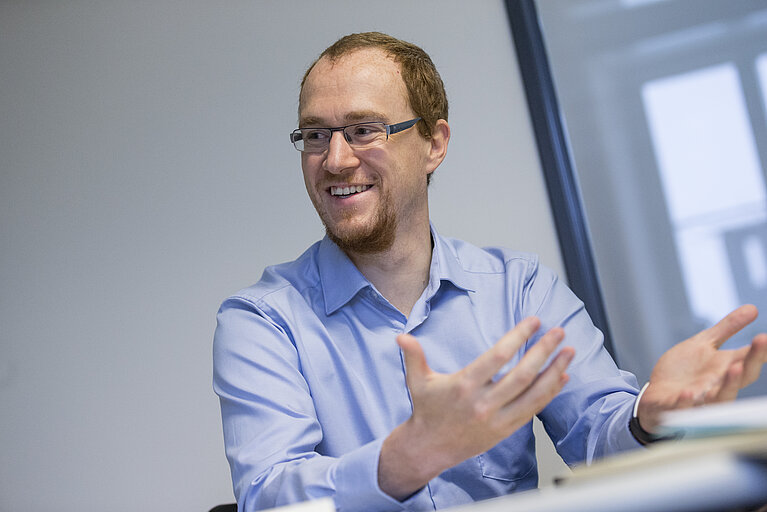October 04, 2022 - by Marianne Lucien (ETH Zurich)
Heading up ETH Zurich’s Scalable Parallel Computing Lab, Torsten Hoefler and his team have been instrumental in developing techniques to improve the efficiency of high-performance computing and large cloud data centre systems. Hoefler has contributed to numerous techniques for application-aware design of High-Performance Computing (HPC) algorithms, systems, and architectures based on rigorous mathematical models. Many of the developed ideas form core components for constructing, running, and programming supercomputers such as the Alps system set to come online at the Swiss National Supercomputing Centre (CSCS) in 2023. Hoefler and his group will also support Alps in becoming one of the world’s most powerful artificial intelligence-capable supercomputers. Hoefler’s life work accelerates scientific research and applications of neural networks, making them more efficient and less costly. The impact of which will unlock new computational capabilities that enable breakthrough technologies in modern science.
Performance model for life
The influence of mathematics permeates Torsten Hoefler’s life and work. As a mountain runner, Hoefler seeks to continually optimise the capability of his own mind by maintaining a healthy lifestyle. As a scientist he and his team focus on improving the efficiency of parallel computing - where work is distributed across many processors that perform mathematical operations simultaneously. The scientists in his group aim to find out how deep learning and high-performance computing applications can be run efficiently on highly parallel systems with several million computing cores.
High-performance honour
Named for the theoretical physicist, Sidney Fernbach, the award recognizes the most influential scientists affecting the design of high-performance computers. Fernbach founded and chaired the IEEE Subcommittee on Scientific Supercomputing and played a pivotal role in the development of the first such supercomputer systems (e.g., the Univac I and IBM 704) which, within his lifetime, accelerated to a million times faster.
Far beyond the certificate and nominal honorarium, Torsten Hoefler, long considered among the world’s experts in optimising parallel computing systems, expressed humility when he described how it felt when the IEEE Computer Society - arguably the world’s most influential association in the field of computer science - named him as this year’s recipient. Hoefler is among the youngest scientists to receive the award, now in its 30th year, and typically dominated by U.S. scientists.
Optimising the future
Hoefler is not one to rest on his laurels, with an eye on the future he anticipates tremendous growth, but also some of the challenges society faces in developing efficient large-scale deep learning training and small-scale inference systems. He believes that learning methods will have a fundamental impact on traditional simulation sciences such as weather and climate predictions, topics in which he is deeply invested.
Torsten Hoefler will formally receive the Sidney Fernbach award during the awards plenary at the SC22 Supercomputing conference together with the 2021 Turing award laureate, Jack Dongarra, an earlier Fernbach award recipient. The ceremony will be held in the company of nearly 5,000 peers on the morning of Tuesday, 15 November 2022. He will also present a plenary talk during the Keynote session scheduled from 8:30 - 10:00am on Wednesday, 16 November.
About Torsten Hoefler
Torsten Hoefler is a professor at the Department of Computer Science at ETH Zurich, where he heads the Scalable Parallel Computing Laboratory since 2012. Internationally, Hoefler is one of the world’s leading scientists in the field of high-performance computing. His work focuses on improving the performance of highly scalable parallel systems and developing numerous applications in the areas of weather, climate simulation, and machine learning. Hoefler has won numerous awards for his work, including earning a place of honour in the technical community when named as an IEEE Fellow and member of Academia Europaea. He also received the Latsis Prize from ETH Zurich, the ACM Gordon Bell Prize, and two European Research Council (ERC) Grants.
